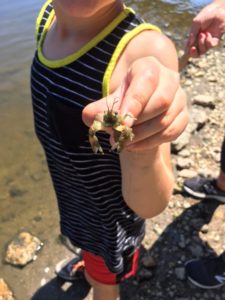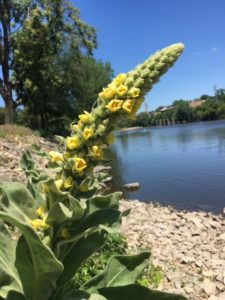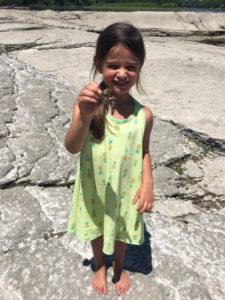Plague Journal, Fox River
 It is tempting to believe that Nature is eternal, subsisting impervious to the erosion of time. A temptation, an illusion, one immature mistake made when we extract “resources” and increase the heat load to the atmosphere and to the oceans. Thus we give a collective shove-of-the-wheel toward global warming and climate change catastrophe. Whenever I spend some time by the Fox River I am reminded of how “things change,” everything without exception.
It is tempting to believe that Nature is eternal, subsisting impervious to the erosion of time. A temptation, an illusion, one immature mistake made when we extract “resources” and increase the heat load to the atmosphere and to the oceans. Thus we give a collective shove-of-the-wheel toward global warming and climate change catastrophe. Whenever I spend some time by the Fox River I am reminded of how “things change,” everything without exception.
In the past, a past that I can imagine the Potawatomi people lived in this area. They were forced off of their land by incursion of the Europeans in the 1800s, and finally pushed west to Oklahoma in the 19th century. It is troubling to consider the difference between the Great Lakes region and Oklahoma in topography and climate, a difference the Potawatomi suffered. Everything is change. Change is the denominator of everything.

 We spent Sunday morning exploring the river a bit down stream from the Champion Windmill dam. Our two grandchildren were captivated by a search for crawfish that inhabit the underside of rocks at the rivers edge. The water level of the river is low due to the drought in the area. Ample rocks were presented for the crawfish hunt. I confess that I was caught up in their examination excitement of the diminutive crustaceans found at waters edge. The water was low enough that it is possible to walk across the river at points below the dam. Water birds taking advantage of the shallow river, blue heron, the white egrets stood on the rock bed in the mid stream intent on feeding.
We spent Sunday morning exploring the river a bit down stream from the Champion Windmill dam. Our two grandchildren were captivated by a search for crawfish that inhabit the underside of rocks at the rivers edge. The water level of the river is low due to the drought in the area. Ample rocks were presented for the crawfish hunt. I confess that I was caught up in their examination excitement of the diminutive crustaceans found at waters edge. The water was low enough that it is possible to walk across the river at points below the dam. Water birds taking advantage of the shallow river, blue heron, the white egrets stood on the rock bed in the mid stream intent on feeding.

 So we explored a segment of the river for a morning. I encountered this wild plant, a meter and a half tall, growing on the rocky bank. Verbascum thapsus, the great mullein or common mullein, is not native to the area. It comes from Europe.
So we explored a segment of the river for a morning. I encountered this wild plant, a meter and a half tall, growing on the rocky bank. Verbascum thapsus, the great mullein or common mullein, is not native to the area. It comes from Europe.
In addition to the image of the flower is a photo of the striations of the rocky river bed exposed by the low water level. Crawfish are proudly displayed by the grandkids.
Change…